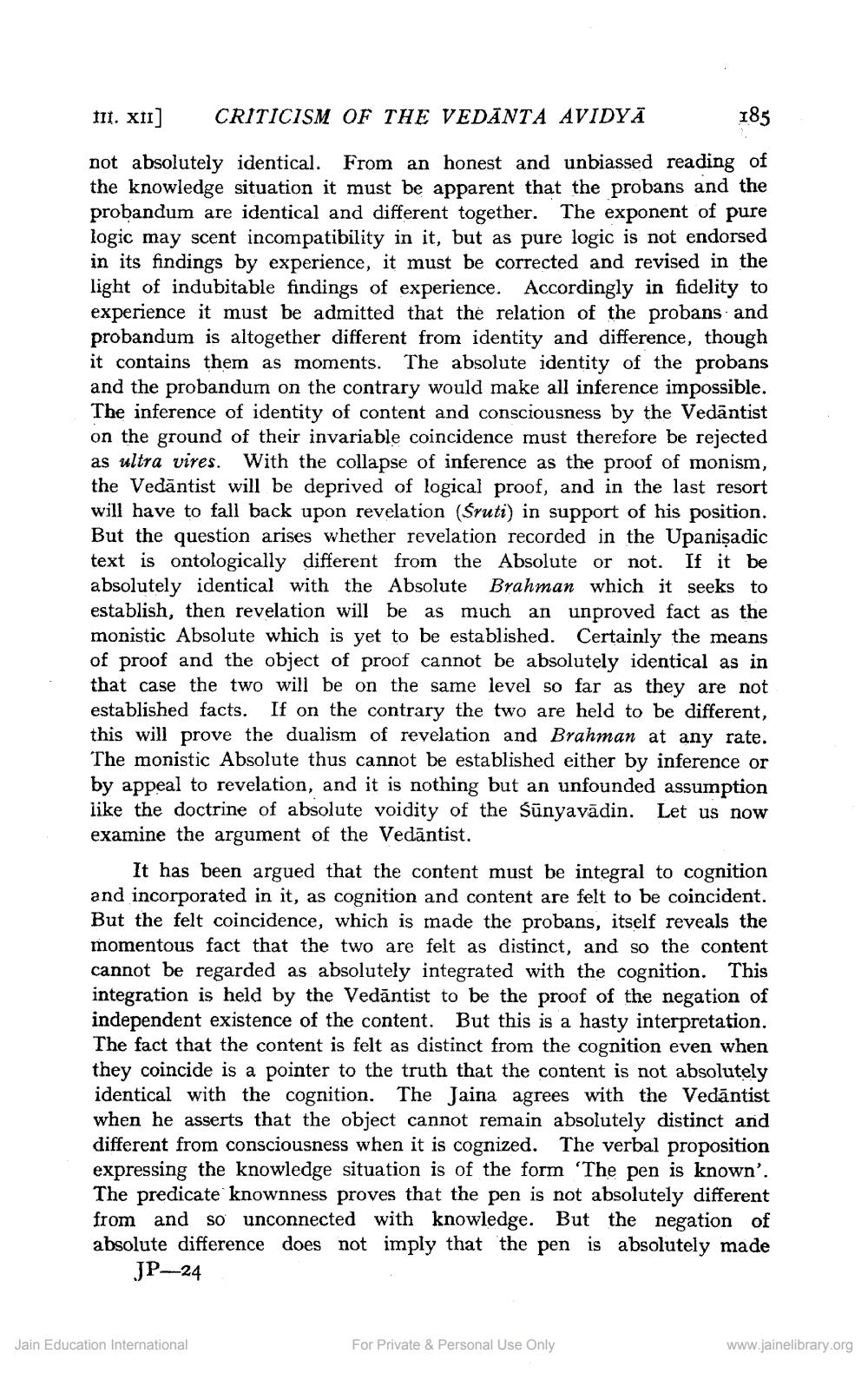________________
III. XII]
CRITICISM OF THE VEDANTA AVIDYĀ
185
not absolutely identical. From an honest and unbiassed reading of the knowledge situation it must be apparent that the probans and the probandum are identical and different together. The exponent of pure logic may scent incompatibility in it, but as pure logic is not endorsed in its findings by experience, it must be corrected and revised in the light of indubitable findings of experience. Accordingly in fidelity to experience it must be admitted that the relation of the probans and probandum is altogether different from identity and difference, though it contains them as moments. The absolute identity of the probans and the probandum on the contrary would make all inference impossible. The inference of identity of content and consciousness by the Vedantist on the ground of their invariable coincidence must therefore be rejected as ultra vires. With the collapse of inference as the proof of monism, the Vedantist will be deprived of logical proof, and in the last resort will have to fall back upon revelation (Sruti) in support of his position. But the question arises whether revelation recorded in the Upanisadic text is ontologically different from the Absolute or not. If it be absolutely identical with the Absolute Brahman which it seeks to establish, then revelation will be as much an unproved fact as the monistic Absolute which is yet to be established. Certainly the means of proof and the object of proof cannot be absolutely identical as in that case the two will be on the same level so far as they are not established facts. If on the contrary the two are held to be different, this will prove the dualism of revelation and Brahman at any rate. The monistic Absolute thus cannot be established either by inference or by appeal to revelation, and it is nothing but an unfounded assumption like the doctrine of absolute voidity of the Sünyavādin. Let us now examine the argument of the Vedāntist.
It has been argued that the content must be integral to cognition and incorporated in it, as cognition and content are felt to be coincident. But the felt coincidence, which is made the probans, itself reveals the momentous fact that the two are felt as distinct, and so the content cannot be regarded as absolutely integrated with the cognition. This integration is held by the Vedantist to be the proof of the negation of independent existence of the content. But this is a hasty interpretation. The fact that the content is felt as distinct from the cognition even when they coincide is a pointer to the truth that the content is not absolutely identical with the cognition. The Jaina agrees with the Vedantist when he asserts that the object cannot remain absolutely distinct and different from consciousness when it is cognized. The verbal proposition expressing the knowledge situation is of the form 'The pen is known'. The predicate knownness proves that the pen is not absolutely different from and so unconnected with knowledge. But the negation of absolute difference does not imply that the pen is absolutely made
JP-24
Jain Education International
For Private & Personal Use Only
www.jainelibrary.org




